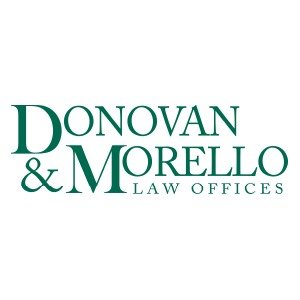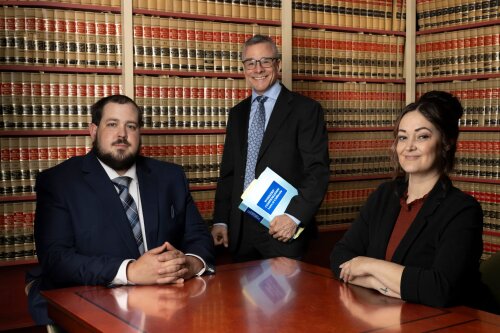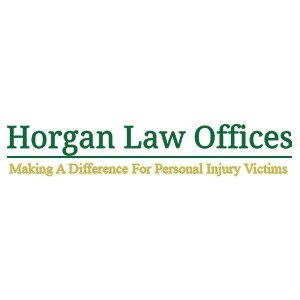Best Accidents & Injuries Lawyers in Connecticut
Share your needs with us, get contacted by law firms.
Free. Takes 2 min.
Or refine your search by selecting a city:
List of the best lawyers in Connecticut, United States
United States Accidents & Injuries Legal Articles
Browse our 1 legal article about Accidents & Injuries in United States written by expert lawyers.
- What to Do After a Serious Car Accident in the US: A Legal Step-by-Step Guide
- Call 911, get medical help, and do not admit fault. Photograph the scene, vehicles, and your injuries, and get witness names and the officer's report number. Report the crash to your insurer quickly. In no-fault states, PIP deadlines are short (e.g., Florida requires initial treatment within 14 days; New York... Read more →
About Accidents & Injuries Law in Connecticut, United States
Accidents and injuries law, often referred to as personal injury law, deals with situations where individuals suffer harm due to the negligence or wrongful acts of others. In Connecticut, this legal area helps injured people pursue compensation for medical costs, lost wages, pain and suffering, and other damages arising from incidents such as car accidents, slip and falls, workplace injuries, medical malpractice, and more. Connecticut’s accident and injury laws aim to ensure that those who are hurt are able to recover financially and physically, while also holding responsible parties accountable.
Why You May Need a Lawyer
While some minor accidents can be handled without legal assistance, many situations benefit from the expertise of a personal injury lawyer. If you have been seriously injured, faced medical bills, lost income, or encountered difficulties dealing with insurance companies, a lawyer can protect your rights and guide you through the legal process. Legal representation can be especially important when:
- The accident resulted in serious or long-term injuries
- Liability or fault for the accident is disputed
- Multiple parties may be responsible
- You are unsure how to value your claim
- An insurance company denies your claim or offers a low settlement
- The accident involved a government entity
Local Laws Overview
Connecticut has specific laws that shape how accidents and injury cases are handled:
- Statute of Limitations: In Connecticut, you generally have two years from the date of injury to file a personal injury lawsuit. Missing this deadline can bar you from recovering compensation.
- Comparative Negligence: Connecticut follows a modified comparative negligence rule. You may recover compensation if you are less than 51 percent at fault for the accident, but your damages will be reduced by your percentage of fault.
- Car Accident Laws: Connecticut is an "at-fault" state for car accidents, so the person responsible for the accident is liable for resulting damages. You must report accidents involving injury, death, or property damage over a certain threshold to the police and the Department of Motor Vehicles.
- Dog Bites: Dog owners are strictly liable for injuries caused by their pets, with few exceptions, such as if the injured party was trespassing or provoking the animal.
- Medical Malpractice: Claims require a certificate of good faith, meaning a reasonable inquiry has been made to determine the existence of a valid claim.
- Premises Liability: Property owners have a legal duty to maintain reasonably safe premises and can be held liable for injuries from unsafe conditions.
Frequently Asked Questions
What should I do immediately after an accident in Connecticut?
Seek medical attention right away, even if you do not think you are seriously hurt. Document the scene by taking photos, collecting contact information from witnesses, and obtaining a copy of any police report. Notify your insurance company and consider consulting an attorney before speaking in detail with other parties or insurance adjusters.
How long do I have to file a personal injury lawsuit in Connecticut?
Most personal injury claims must be filed within two years from the date of the injury. Some exceptions may apply, so it is important to act promptly and consult a lawyer if you are unsure.
What types of compensation can I recover in a personal injury case?
You may be entitled to compensation for medical bills, lost wages, pain and suffering, property damage, and in some cases, punitive damages if the at-fault party’s conduct was egregious.
What if I was partially at fault for the accident?
Connecticut’s modified comparative negligence law allows you to recover compensation as long as you were less than 51 percent responsible. Your recovery will be reduced by your percentage of fault.
Do I need a lawyer for a minor injury?
For minor injuries with clear liability and minimal expenses, you may not need legal help. However, if your injury is serious, or if you are experiencing problems with an insurance claim, consulting a lawyer can help protect your interests.
How are personal injury lawyers paid in Connecticut?
Most personal injury lawyers work on a contingency fee basis. That means you pay no upfront fees, and the lawyer is paid a percentage of your recovery if you win your case or obtain a settlement.
What if the person who injured me does not have insurance?
You may have other options for recovery, such as your own uninsured or underinsured motorist coverage in car accidents, or pursuing the liable party’s personal assets. Your attorney can review the potential sources of compensation for your situation.
Can I sue for emotional distress after an accident?
Yes, Connecticut allows claims for emotional distress as part of your overall injury damages, especially if accompanied by physical harm.
What is the process for filing a claim against a government entity?
Special notice and filing requirements apply. These claims may have shorter deadlines and additional steps, so it is important to consult a lawyer as soon as possible if a government agency is involved.
Will my case go to trial?
Most personal injury cases are settled out of court. However, your lawyer should be prepared to go to trial if a fair settlement cannot be reached.
Additional Resources
Here are some helpful resources and organizations for those seeking legal advice about accidents and injuries in Connecticut:
- Connecticut Judicial Branch - Provides information on court procedures and self-help resources
- Connecticut Department of Motor Vehicles - For accident reporting and traffic incident guidance
- Connecticut State Medical Society - Information on medical malpractice concerns
- Connecticut Bar Association - Find a qualified personal injury attorney in your area
- Connecticut Insurance Department - Resources for resolving insurance disputes
- Office of the Healthcare Advocate - Assistance with healthcare access and insurance denials
Next Steps
If you or a loved one has been injured in an accident, it is essential to act quickly to protect your rights and maximize your potential recovery. Consider the following steps:
- Seek immediate medical attention for your injuries
- Gather and preserve documentation, such as photographs, witness information, police reports, and medical records
- Contact your insurance company to report the incident
- Consult with a qualified personal injury attorney as soon as possible to evaluate your case and guide you through the process
Lawzana helps you find the best lawyers and law firms in Connecticut through a curated and pre-screened list of qualified legal professionals. Our platform offers rankings and detailed profiles of attorneys and law firms, allowing you to compare based on practice areas, including Accidents & Injuries, experience, and client feedback.
Each profile includes a description of the firm's areas of practice, client reviews, team members and partners, year of establishment, spoken languages, office locations, contact information, social media presence, and any published articles or resources. Most firms on our platform speak English and are experienced in both local and international legal matters.
Get a quote from top-rated law firms in Connecticut, United States — quickly, securely, and without unnecessary hassle.
Disclaimer:
The information provided on this page is for general informational purposes only and does not constitute legal advice. While we strive to ensure the accuracy and relevance of the content, legal information may change over time, and interpretations of the law can vary. You should always consult with a qualified legal professional for advice specific to your situation.
We disclaim all liability for actions taken or not taken based on the content of this page. If you believe any information is incorrect or outdated, please contact us, and we will review and update it where appropriate.
Browse accidents & injuries law firms by service in Connecticut, United States
Connecticut, United States Attorneys in related practice areas.
Browse accidents & injuries law firms by city in Connecticut
Refine your search by selecting a city.















